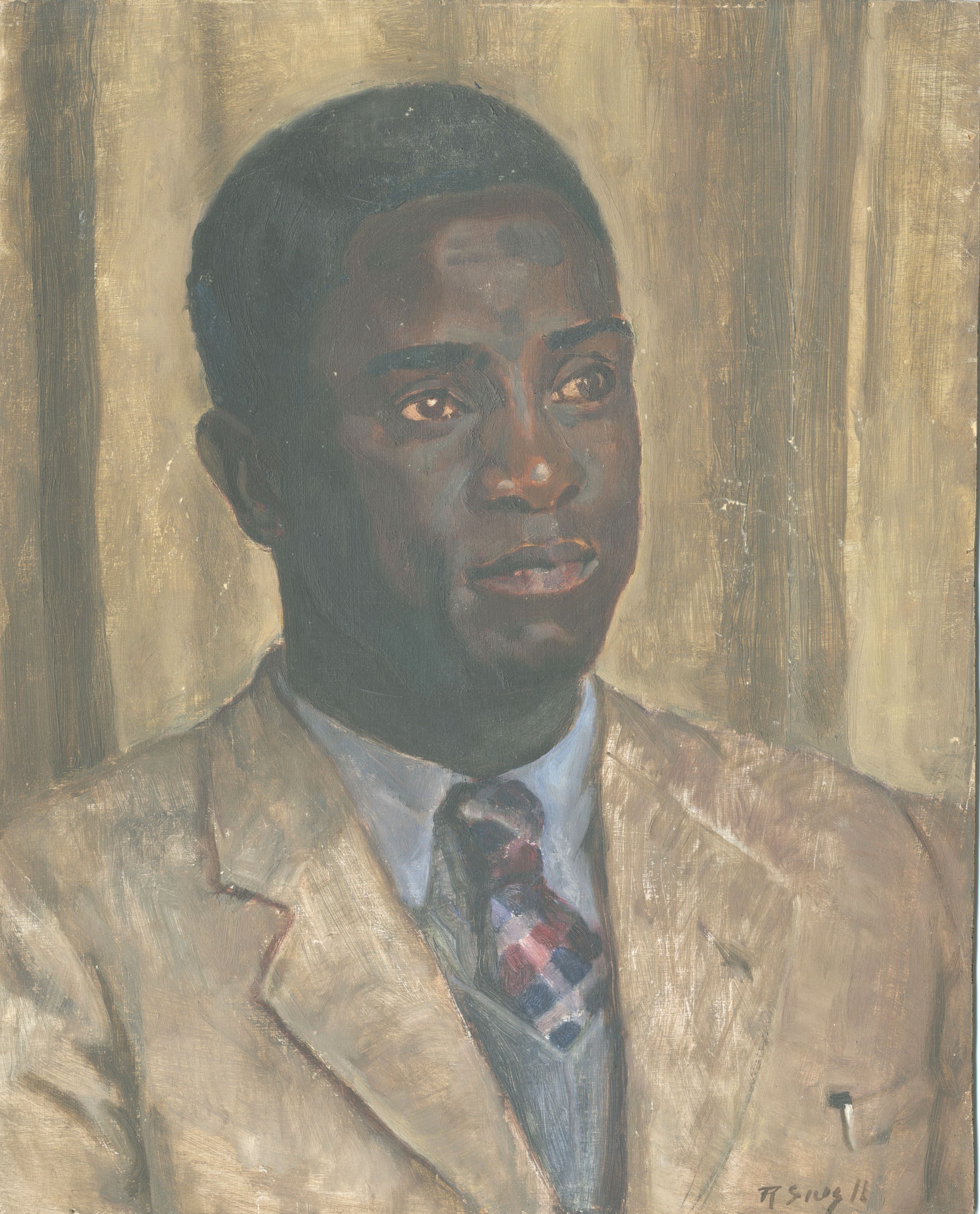Kenneth Onwuka Dike
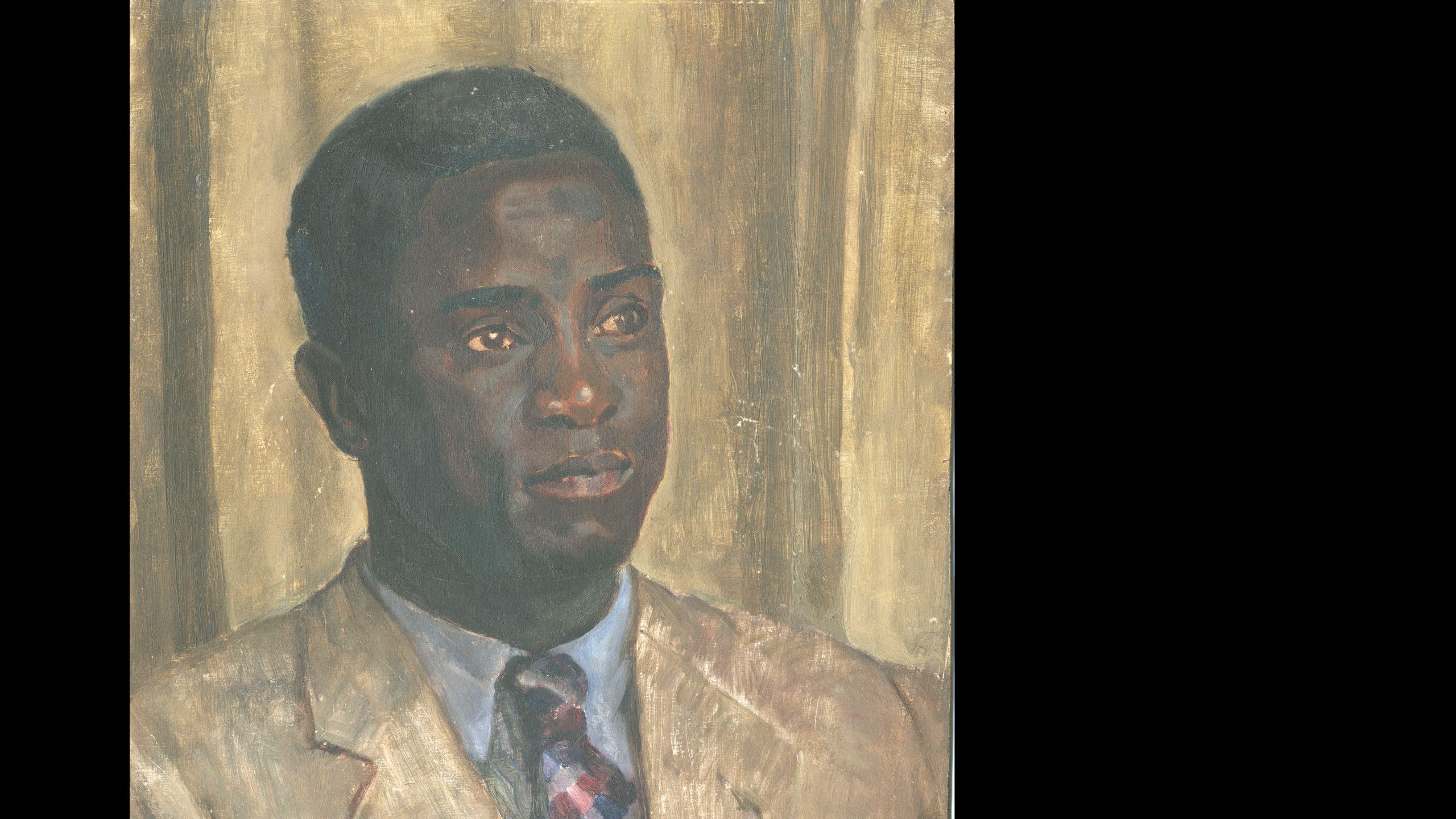
The Aberdeen History student who came to be known as 'the father of modern African historiography'
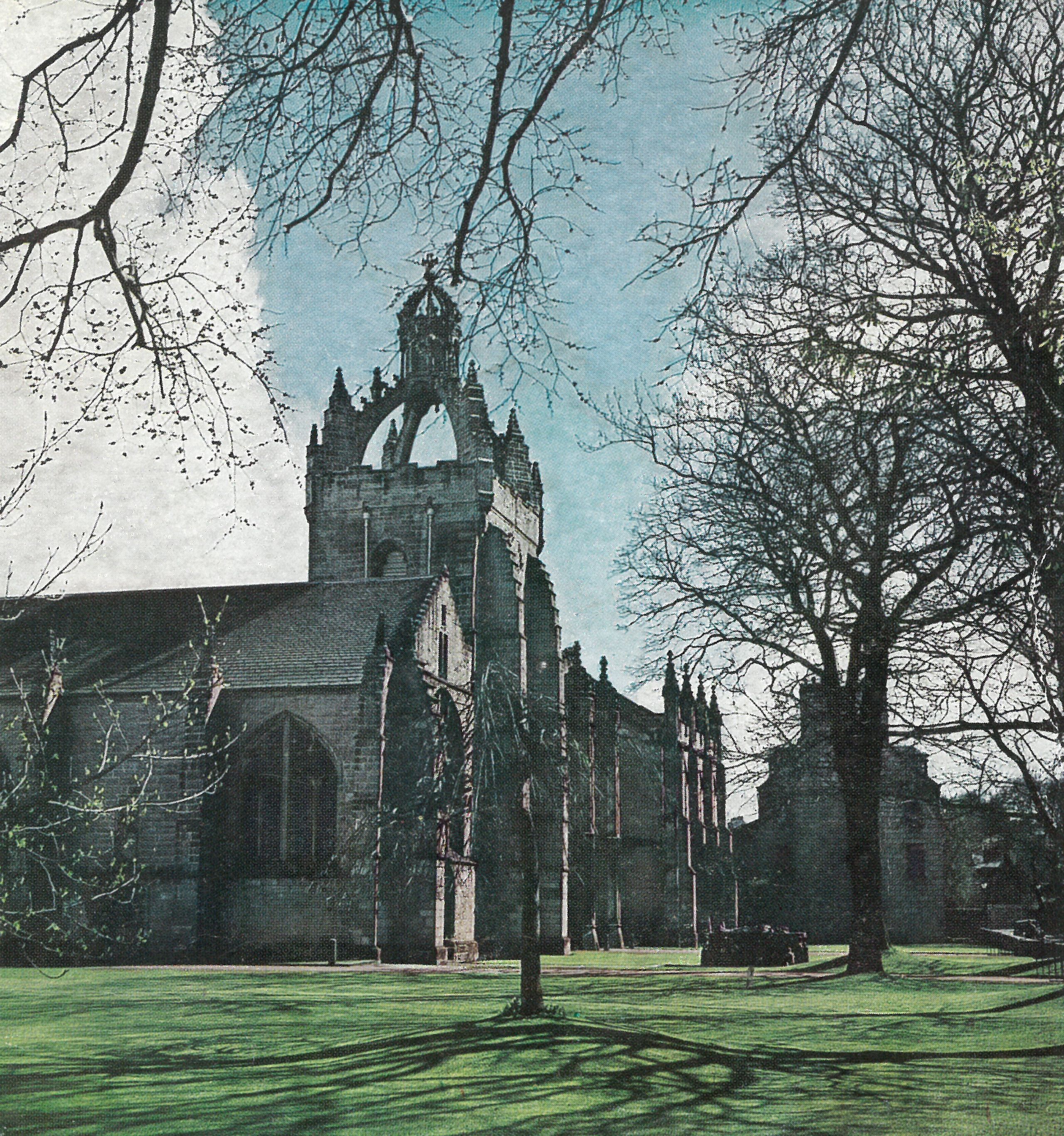

The Kenneth Dike Library at the University of Ibadan, Nigeria, is home to a significant collection of African oriented material for the study of Nigerian and African history. The repository stands as a fitting tribute to the man for whom the library was named: Kenneth Onwuka Dike, an academic and historian who made enormous contributions to the study of African cultural and historical heritage.
Kenneth Dike (pronounced Diké) is also remembered and celebrated at the University of Aberdeen, where he embarked on his academic career with an M.A. in history between the years of 1944 and 1947, and where his portrait now hangs in the University offices.

The portrait, an oil painting by artist Robert Sivell (1888-1958), was painted when Dike was a young, determined scholar, before he had gone on to accomplish all that he did as a Professor of African History, Founder of the Nigerian National Archives, and Roving Ambassador for the Biafran cause during the Nigerian Civil War.
Early Life and Education
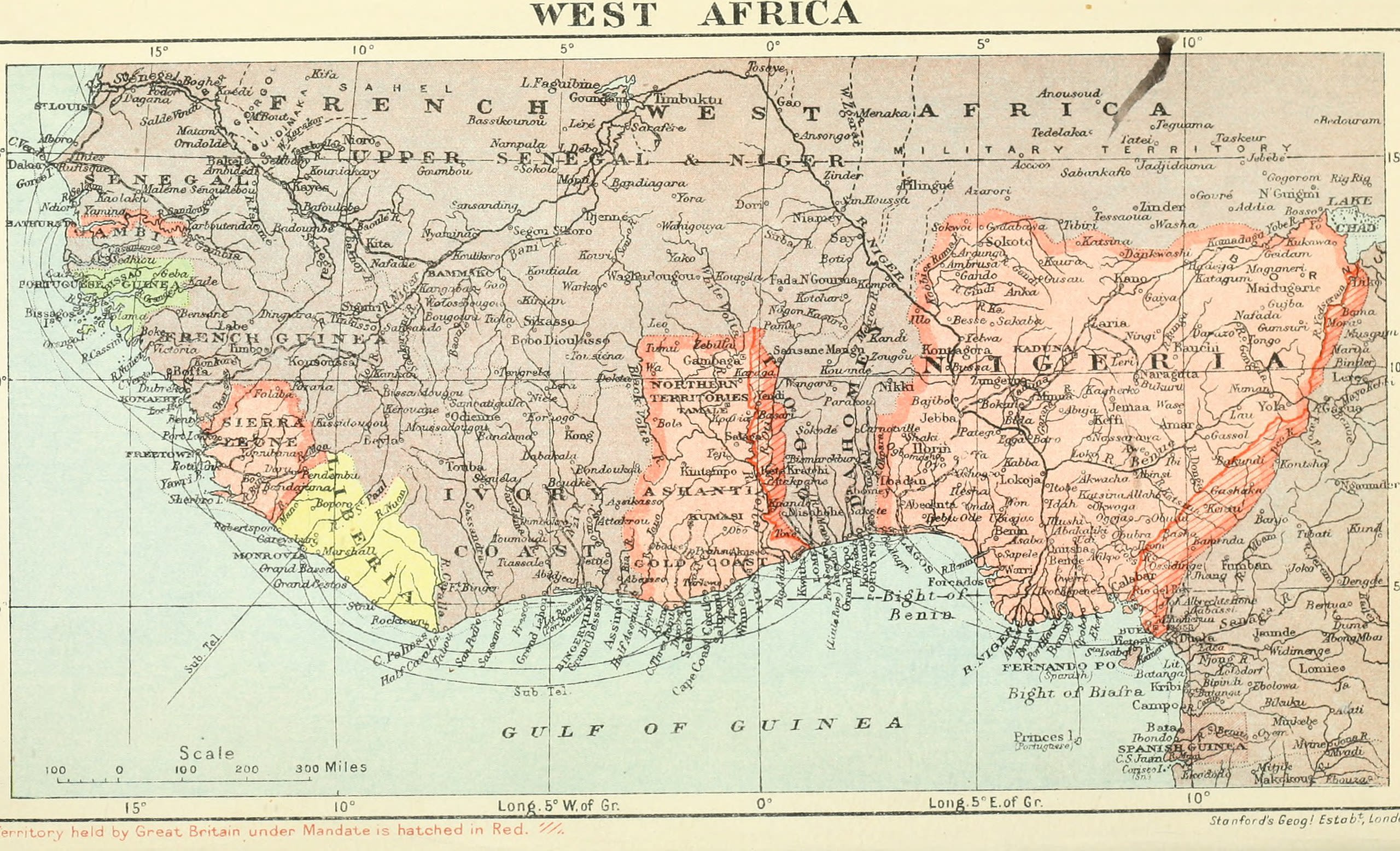
Dike was of Igbo heritage, born in Awka in present-day Anambra state, Nigeria, on December 17 1917. Gloria Chuku, herself a Professor of Africana Studies, tells of his being the third son in a family of traders, and how he was tragically orphaned aged six, following the deaths of both his parents within a year of each other.
Now cared for by his grandfather and older brother, Dike, still a small boy, was made the apprentice of a travelling medicine-man, or healer. He acquired a wealth of local historical knowledge during his travels between Awka and Onitsha, also gaining a formal education from several schools in the region.
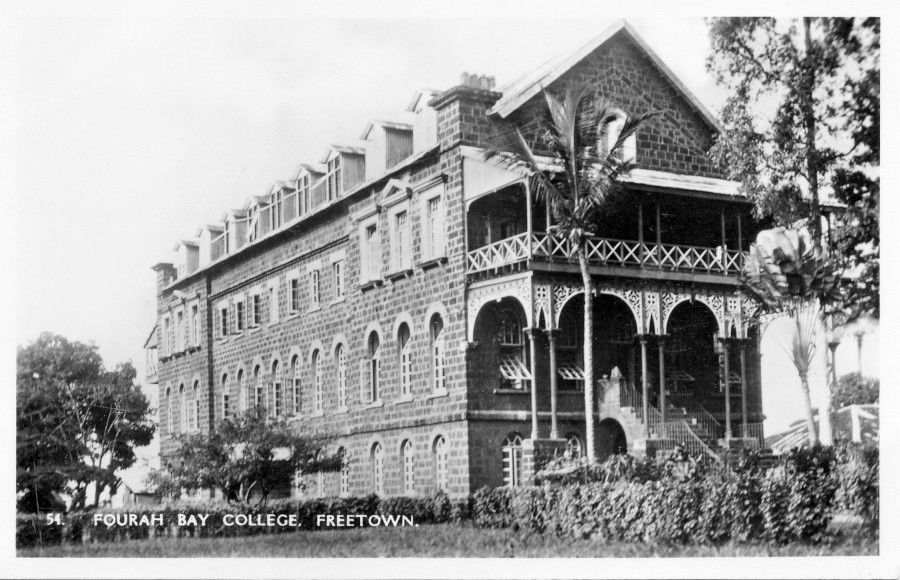
Fourah Bay College, 1930s (Image Credit: Hofstra Collection)
Fourah Bay College, 1930s (Image Credit: Hofstra Collection)
Dike began studying for a B.A. in English, Geography and Latin at Fourah Bay College in Sierra Leone in 1939. Four years later the degree was awarded to him by the University of Durham, who were affiliated to Fourah Bay at the time. In 1944 Dike left Nigeria to pursue his M.A. at Aberdeen on a British Council Scholarship.
Dike spent three years studying history at Aberdeen, and graduated with a first-class honours degree, the best student in his year. He then pursued a PhD at King’s College, London, writing a dissertation that would later form the basis of his seminal book: Trade and Politics in the Niger Delta, 1830-1885.
An Academic and Activist Career
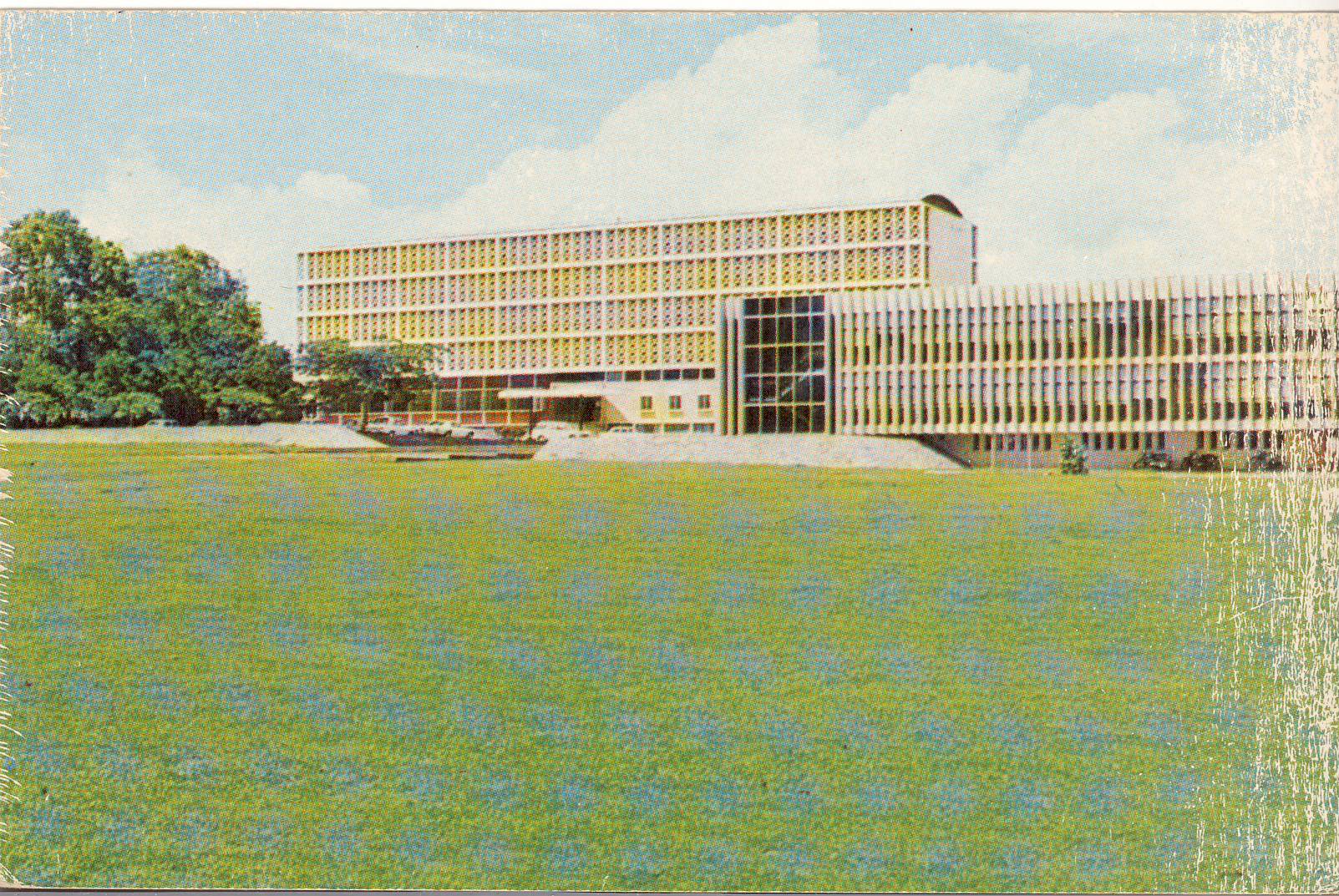
After being awarded his PhD, Dike returned to Nigeria and joined the History department of University College Ibadan, becoming, writes Chuku, the ‘first African with a doctoral degree to teach African history at a university in Africa’. At this time, though, the department did not offer any courses dedicated to African history. Unable to tolerate the ‘insufficient emphasis being placed on the study of African history’ at University College, Dike resigned in 1951 to join the West African Institute for Social and Economic Research.
Dike carried out research at WAISER for a time. In order to assist historical research in Nigeria and decolonise the country’s history, he helped found the Nigerian National Archives in 1954 and became its first Director. In 1955 he returned to University College as a Senior Lecturer and soon became the first African to be appointed a (full) Professor of History, and the first to head a History Department. As Head, Dike transformed the curriculum, pushing the department in the direction of a more Africanist perspective and applying a multidisciplinary approach to the study of Africa’s past. He saw it as his role to train a new generation of African students who would go on to research African history professionally, as he was doing.
In 1961 the University of Aberdeen conferred on Dike an Honorary LLD in recognition of his achievements – many similar honours followed from universities across the world.
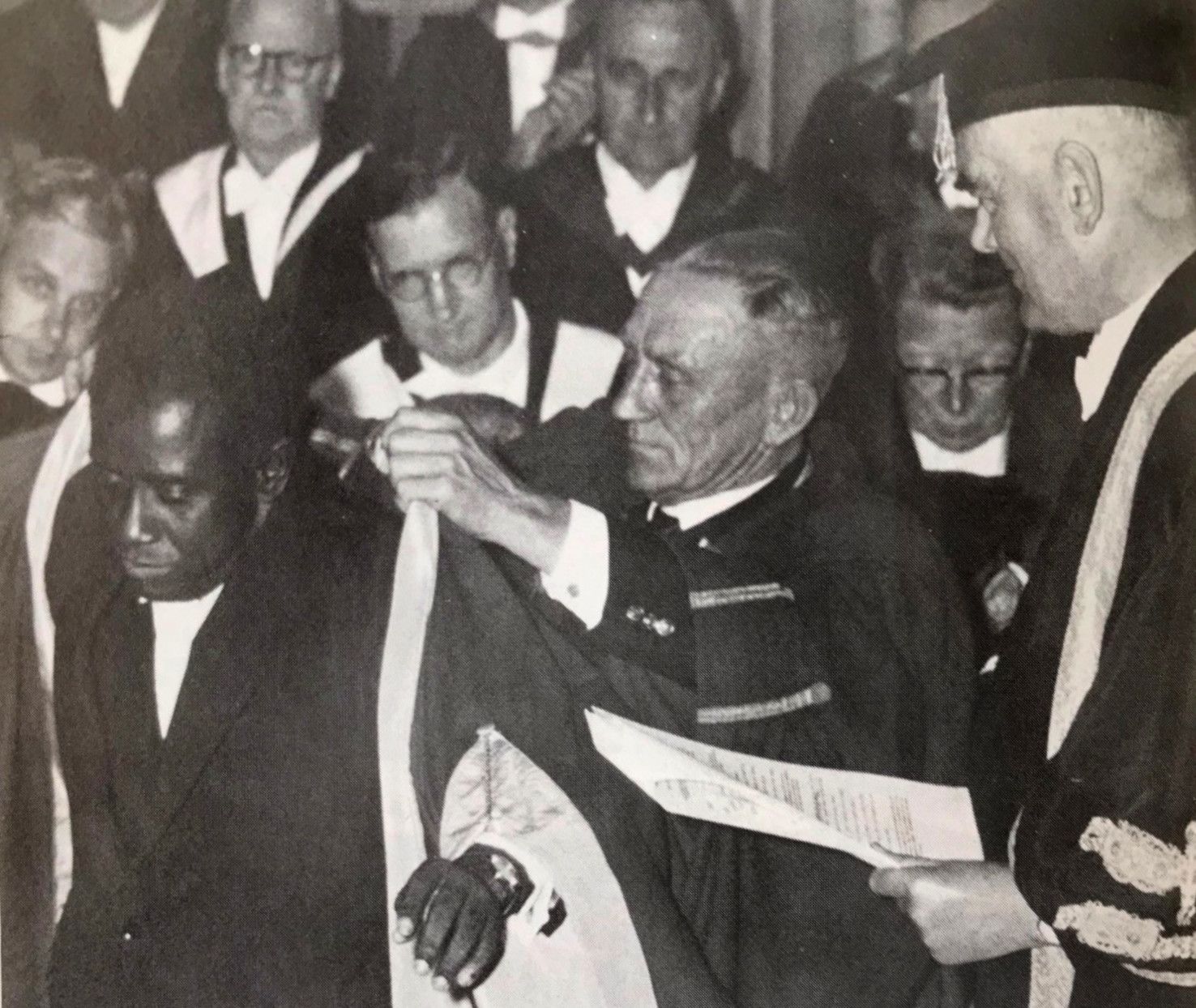
Kenneth Dike receiving his LLD from Principal Sir Thomas Taylor, 7 July 1961
Kenneth Dike receiving his LLD from Principal Sir Thomas Taylor, 7 July 1961
Dike eventually became Principal of University College, Ibadan, and when it later developed into a fully-fledged university, the University of Ibadan, he took on the role of Vice-Chancellor between 1962 and 1967.
A Profound Legacy
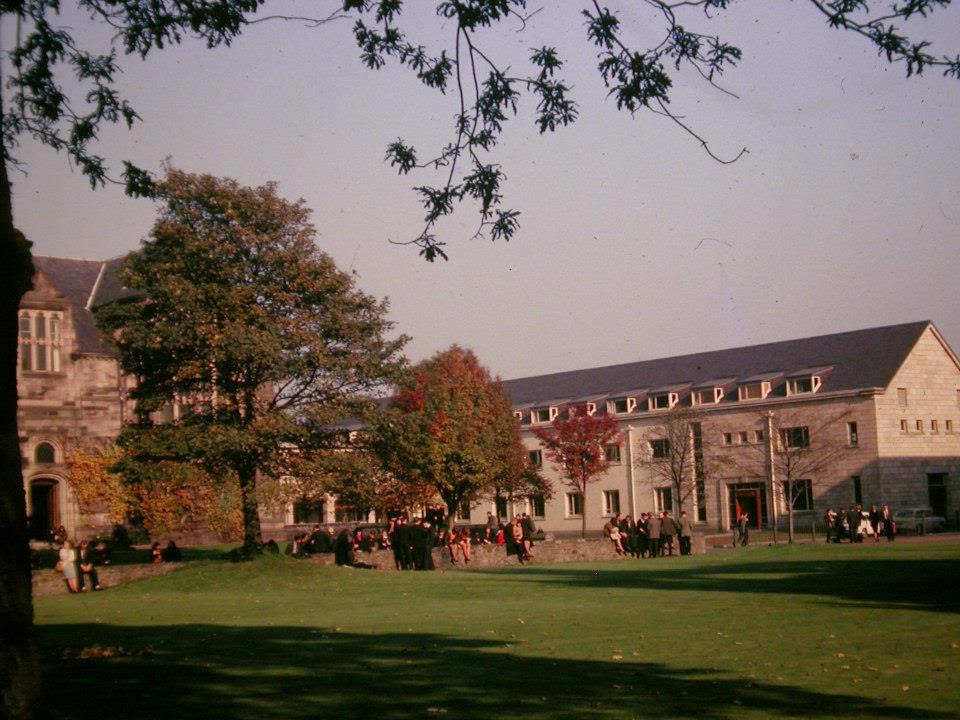
Dike had a wife – Ona Patricia Olisa, who was a nurse and midwife – and five children, who his career often kept him from. During his time at Harvard he attempted to make up for previous absences by refusing opportunities that would take him away from the family he loved.
Nonetheless, he continued to make profound contributions in his work as a teacher and researcher in the fields of Nigerian and African history, British colonial rule in West Africa, the Transatlantic Slave Trade, and to the advancement of a new African historical method.
In a speech in 1980, as he neared the end of his life, Dike urged African historians not to relax in their efforts to decolonise the study of their history.
After his death in 1983, aged just sixty-six, he was aptly memorialised by fellow historian Chieka Ifemesia on behalf of the Historical Society of Nigeria, of which he was founder and former president. Ifemesia described Dike as not only the ‘father of modern African historiography’ but also a ‘historian-statesman’ and ‘great teacher.’
In 1985 the Nigerian Historical Society began the Annual Dike Memorial Lecture Series in his honour.
On October 26 1988, the Kenneth Onwuka Dike Center opened in Dike’s hometown of Awka.
